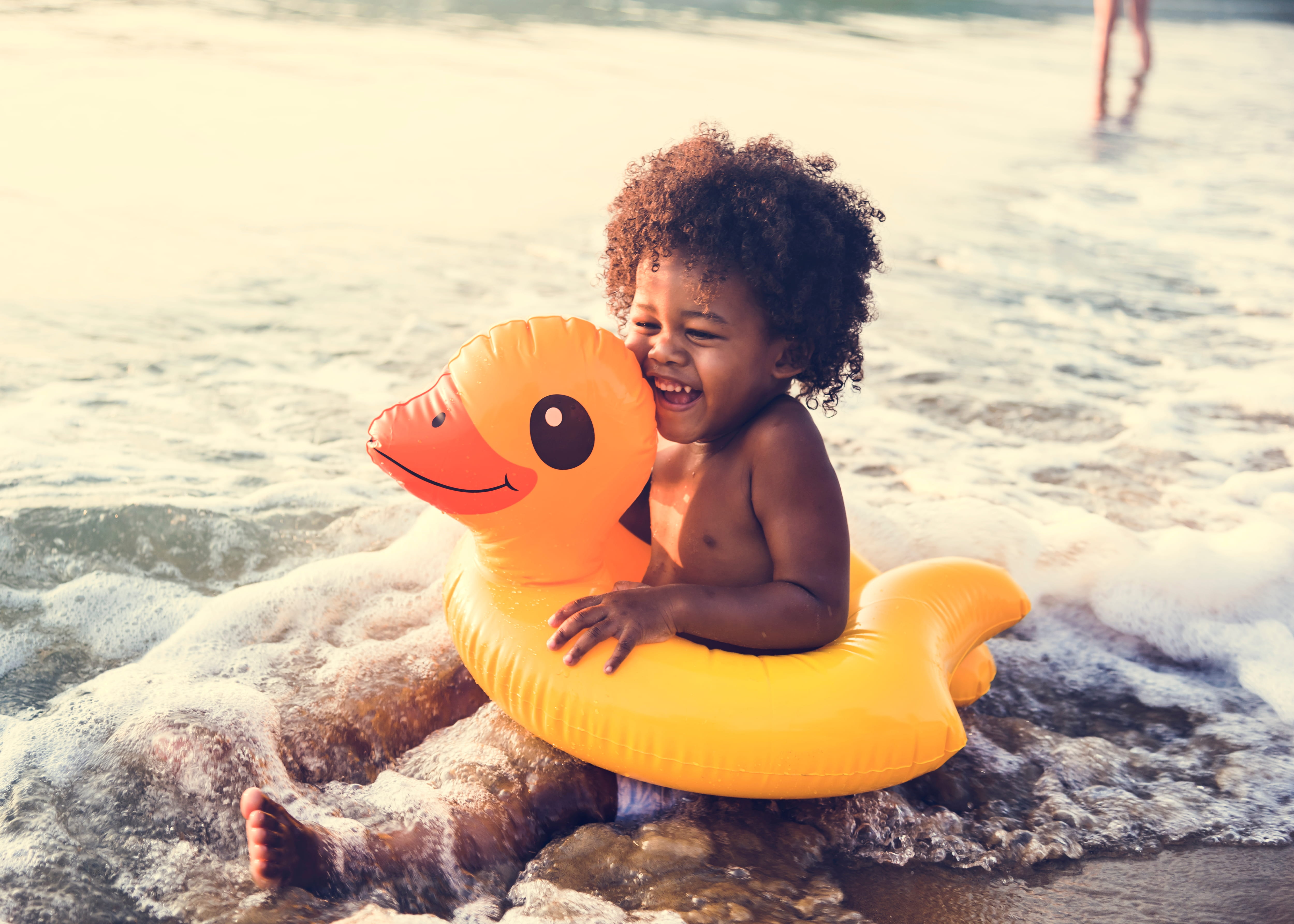Travelling with children and essential holiday first aid advice

Travelling with children and essential holiday first aid advice
Travelling with a baby or toddler for the first time can be daunting and exhausting experience. Our top tips and practical advice can help to smooth the way for a happy and healthy holiday.
Flying with babies:
- Flying with little ones is the first challenge; take small sachets of Calpol or Nurofen in your hand luggage as these can help if the air pressure hurts their ears.
- Chewing, sipping water or sucking on a dummy whilst taking off can help relieve ear pressure.
- Pack favourite toys and books to keep children occupied during the journey, a special toy or blanket to encourage them to sleep and have a good supply of snacks in case they won’t eat the food on the plane.
- It can also be useful to take a change of clothes for your child and for you. Planes can be quite cold so take an extra jacket and pair of socks.
- If permitted, take your buggy as far as the departure gate. A baby sling can be helpful as often your buggy is not returned until baggage reclaim.
- Get to the airport in good time as you may be allocated specific seats at the front you are travelling with babies; bassinets are generally available for babies up to 2 years.
- It is usually possible to pre-order baby food and ready to drink formula through Boots airside. Ensure you take enough for the flight and to acclimatise once abroad (order at least 7 days prior to departure).
- In hot climates think carefully when packing to ensure you have suitable clothes to allow your body to breathe.
- Pack travel blackout blinds and sunshades..
Dehydration, sunburn and heat exhaustion
Keeping everyone well hydrated is particularly important in hot climates.
- Treat the sun with respect; cover up with hats, sunglasses and sun cream, drink plenty and keep out of the midday sun.
- If you are swimming or sailing remember that reflections from water increase the potency of the sun and regularly apply additional sunscreen accordingly.
- If someone shows signs of heat exhaustion; flushed, sweaty, stomach cramps, headaches, encourage them to sit in the shade and drink to replace their fluids. Seek medical advice if concerned.
Plan ahead:
- Research in advance about specific dangers in the areas you are visiting. Learn how particular stings, bites, illnesses or reactions should be treated if affected. Choose a child friendly mosquito repellent and wear long, loose clothing to avoid being bitten. Be particularly careful at dusk.
- Accidents and illnesses can happen anywhere and can be more stressful when away from home. Equipping yourself with an appropriately stocked First Aid kit and the knowledge to help, means you are ready for action if something happens.
Here are some top tips for essential travel kits and medication:
1. Paediatric Paracetamol or Ibuprofen sachets – to have on the plane in case the air pressure hurts a childs ears and it is always handy to have painkillers to hand anyway.
2. Paediatric Piriton (or alternative antihistamine) – in case of a mild allergic reaction to new foods, stings etc.
3. Plasters – for short-term covering of a wound. Remove as soon as possible, clean and then cover with an appropriate dressing, as plasters can lead to wounds becoming soggy.
4. An instant ice pack – can be activated when you need it (without a freezer). Wrap and then apply to a bump or bruise to reduce swelling.
5. Non-adherent dressings for grazes and micropore tape to secure them to the wound. A couple of finger bandages and small bandage-style dressings are useful too.
6. Burn Gel – use after cooling a burn under cool running water for at least 20 minutes, or helpful if burnt when there is no running water available, also great for sunburn.
7. Tough cut scissors to cut off clothes and good quality tweezers to remove a splinter or sea urchin spines.
9. Sterile wipes to clean a wound or pods of saline and some gauze squares – the saline is also useful to irrigate sand out of eyes.
10. Small crepe bandage to provide a support bandage for an injured limb.
Ensure you have the number for the emergency services – throughout Europe the emergency number is 112 (elsewhere you should google in advance or check in your guidebook)